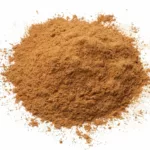Acid Reflux and Persistent Cough – What You Need to Know
Dealing with a persistent cough and wondering if it’s related to acid reflux? It’s more common than you might think! Many people don’t realize that acid reflux can cause coughing, and it can be hard to know where to start when it comes to managing the symptoms. Let’s break it down so you can understand what’s going on and how to handle it!
If you’ve ever experienced a cough that just won’t go away, you might be surprised to learn that it could be linked to acid reflux. While most people associate acid reflux with heartburn, the condition can also cause other symptoms—like a persistent cough—that aren’t so obvious. So how does acid reflux lead to coughing, and what can you do about it? Let’s dive into everything you need to know about acid reflux and persistent coughs.

What is Acid Reflux?
First, let’s quickly define acid reflux. It’s a condition where stomach acid flows back up into the esophagus, the tube that connects your mouth to your stomach. This backward flow is usually controlled by a valve at the bottom of the esophagus, but when it fails to close properly, acid can escape and cause irritation. This is commonly referred to as Gastroesophageal Reflux Disease (GERD) when it becomes chronic.
Acid reflux is often known for causing heartburn, a burning sensation in the chest, but it can also lead to other symptoms, including coughing. Sometimes, the acid reaches the back of the throat or the airways, triggering a cough as your body tries to clear the irritant.

How Does Acid Reflux Cause a Persistent Cough?
It might sound strange, but acid reflux and coughing are actually linked. Here’s how it works:
1. Irritation of the Throat and Airway
When stomach acid flows back into the esophagus, it can reach the throat, which causes irritation. The acid can irritate the lining of the throat and the airways, triggering a reflex that leads to coughing. This type of cough is often dry and persistent.
2. Aspiration of Acid into the Lungs
In some cases, small amounts of acid can enter the lungs through aspiration, which can lead to coughing, wheezing, or even a feeling of choking. This can happen without you even realizing it, and it’s a common cause of cough in people with acid reflux.
3. Sensitivity in the Esophagus
The constant irritation caused by acid reflux can lead to hypersensitivity in the esophagus. This means that even small amounts of acid or food can trigger a cough. It’s as if your body is on high alert, trying to protect itself from the irritation.

Signs Your Cough Might Be Caused by Acid Reflux
How can you tell if your persistent cough is related to acid reflux? Here are a few signs to watch for:
1. A Dry, Non-Productive Cough
If your cough is dry, with no mucus or phlegm, it could be a sign that it’s linked to acid reflux. Wet or productive coughs are typically caused by infections or other respiratory issues.
2. Worsening Cough at Night
Many people with acid reflux experience a cough that gets worse at night. This is because when you lie down, it’s easier for acid to flow back up into the throat and airways, leading to coughing during sleep.
3. Cough After Eating or Drinking
If your cough tends to happen after meals or when you drink certain beverages (like coffee or alcohol), it could be a sign of acid reflux. These foods and drinks can trigger reflux by relaxing the lower esophageal sphincter, the valve that keeps stomach acid where it belongs.

Treatment Options for Acid Reflux and Persistent Cough
Now that you know how acid reflux can cause a cough, what can you do about it? Here are some treatment options to help you manage both acid reflux and your persistent cough:
1. Lifestyle Changes
Making some simple changes to your daily routine can help reduce acid reflux and, in turn, alleviate your cough. These include:
- Eating smaller, more frequent meals to avoid overloading your stomach.
- Avoiding trigger foods like spicy foods, chocolate, caffeine, and alcohol.
- Not lying down immediately after eating; wait at least two to three hours before reclining.
- Elevating the head of your bed to keep acid from flowing back into your throat while you sleep.
2. Medications
Over-the-counter medications like antacids, H2 blockers, or proton pump inhibitors (PPIs) can help reduce stomach acid and ease the symptoms of acid reflux. If your cough is persistent, these medications may also help reduce the irritation in your throat.
3. Speech or Breathing Therapy
If acid reflux has caused ongoing irritation to your vocal cords or airways, speech or breathing therapy might be helpful. A therapist can guide you on techniques to reduce coughing and protect your throat from further irritation.
4. Surgery
In severe cases where lifestyle changes and medications don’t help, surgery may be an option. Procedures like fundoplication can help tighten the lower esophageal sphincter to prevent acid reflux.
When to See a Doctor
If your cough is persistent and doesn’t respond to over-the-counter medications or lifestyle changes, it’s a good idea to see a doctor. They can help diagnose whether acid reflux is the cause of your symptoms and suggest more advanced treatments.
Additionally, if you experience other symptoms like chest pain, difficulty swallowing, or weight loss, seek medical attention right away, as these could be signs of a more serious condition.
Conclusion
A persistent cough caused by acid reflux can be frustrating, but understanding the connection between the two can help you take the right steps toward relief. With the right treatment plan—whether it’s lifestyle changes, medications, or professional help—you can manage both your acid reflux and the irritating cough that comes with it. If you’re unsure whether your cough is linked to acid reflux, don’t hesitate to consult with a healthcare professional.
Appendices
FAQs
- Can acid reflux cause coughing without heartburn? Yes, it’s possible to have a persistent cough without experiencing heartburn. This is often referred to as “silent reflux” or “laryngopharyngeal reflux (LPR).”
- How can I tell if my cough is from acid reflux or something else? If your cough is dry, persistent, and worsens after meals or when lying down, it could be from acid reflux. If you have other symptoms like a sore throat or hoarseness, that may also indicate reflux-related issues.
- Can over-the-counter medications help with reflux-related coughing? Yes, medications like antacids, H2 blockers, or PPIs can help reduce stomach acid and ease reflux symptoms, including coughing.
- Are there foods that can help reduce acid reflux? Yes, foods like bananas, oatmeal, and ginger can help soothe your stomach and reduce acid reflux symptoms.
- How long does it take for a cough from acid reflux to improve? With treatment, it may take a few weeks for a cough caused by acid reflux to improve, though it varies by individual.
References
- American College of Gastroenterology. (2024). Understanding GERD and Its Symptoms. Read Article
- Johns Hopkins Medicine. (2024). Reflux Cough: What You Need to Know. Read Article
- Mayo Clinic. (2024). Acid Reflux and GERD: What You Need to Know. Read Article
Disclaimer: The information in this article is for educational purposes only and should not replace medical advice. Always consult with a healthcare professional for diagnosis and treatment options tailored to your individual needs.














